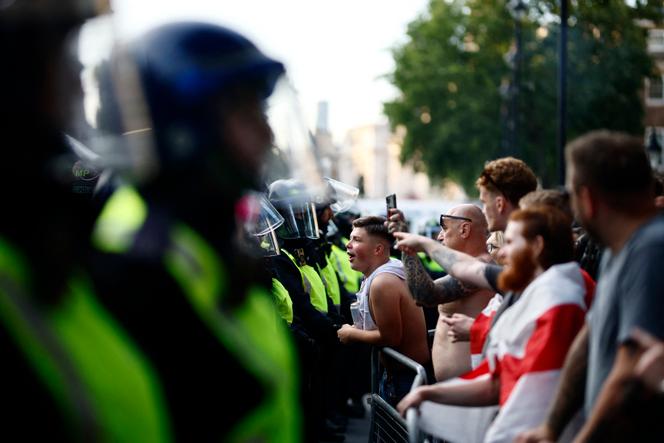


A month after the start of the riots that rocked Britain this summer, calm has returned. At the source of these clashes were false reports circulated by far-right networks that the alleged murderer of three girls in Southport, near Liverpool, on July 29 was a Muslim who had just arrived in the country in a "small boat," when in fact he was British. The police have made over 1,000 arrests, and at least 200 people have already been convicted (most of them to prison sentences).
The storm seems to have passed, and counter-demonstrations led by anti-racist collectives have also played their part, showing the opposition of tens of thousands to the Islamophobia and racism professed by the rioters in the streets. They "saw the cracks in our society after 14 years of populism and [Conservative] failures – and they exploited them," said British Labour Prime Minister Keir Starmer, who has been in Downing Street since July, on Tuesday, August 27. He promised to do politics "differently" in response to the "societal black hole" revealed by the riots.
They also highlight a paradox at the heart of the British far right. Unlike elsewhere in Europe, no party stemming from this movement has managed to break through electorally. And yet, its power to mobilize, amplified by social media, proved considerable during the riots, and its potential for violence very real. On July 27, Tommy Robinson, the best-known figure of the British radical right, managed to gather 30,000 supporters in Trafalgar Square, in the heart of London. Hundreds of them were in Southport throwing bricks at police officers over the following days.
Besides Reform UK, the party of the charismatic Nigel Farage, which British political scientists consider to be more hard right than far right ("it accepts democratic principles," said Tim Squirrell of the Institute for Strategic Dialogue), there are a dozen other formations, some of which don't even have the status of political parties: the Reclaim Party, the Patriotic Alternative, the Homeland Party and Britain First. These groupings – at most a few thousand active activists (exact figures are not available) – are often rivals. But what they have in common is that they profess hatred of foreigners and Islam and attract largely white men. According to Squirrell, "They often don't even win enough votes to get their election deposit back."
This was not always true. Founded in 1932, the fascist British Union of Fascists (BUF) led by Oswald Mosley, a former Labour and then Conservative MP, had up to 40,000 members. Imperialist and anti-Semitic, the BUF was best known for its protest violence. The well-known Cable Street demonstration against anti-Semitism in East London in October 1936 managed to stop it in its tracks. British fascist movements were banned after the country entered the war against Nazi Germany. At the end of the 1960s, the far right was reconstituted under the umbrella of the National Front (NF), mobilized against migration from former British colonies. Its members took to the streets and terrorized populations of Caribbean and Asian origin.
You have 61.06% of this article left to read. The rest is for subscribers only.
